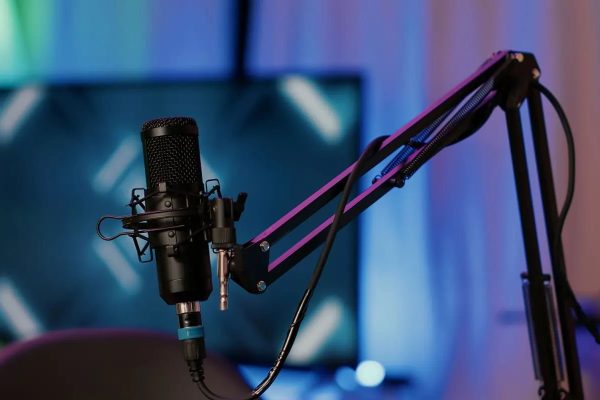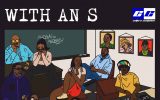by Kolapo Olapoju
In recent time, the Niger-Delta region of the Nigeria has witnessed a lengthy period of peaceful co-existence with oil companies operating in the region, as opposed to what was obtainable about a decade ago when the region was enmeshed in communal clashes, abductions and societal unrest over the perceived indifference of oil companies to the plight of Niger Deltans.
Many citizens of the Niger Delta felt marginalized blaming the unhealthy relationship between the Federal Government and oil majors for its economic and political underdevelopment.
The region produces more than 90 per cent of Nigeria’s crude oil – a natural resource responsible for over 80 per cent of government revenue.
For many years, the oil industry had made staggered efforts to fill in for government’s absence in this region by providing amenities including schools, hospitals, scholarships, jobs, etc., but then, considering its population, only a few indigenes benefited from the intervention, hence the agitations.
In 2003, a series of violent clashes between two age-long ethnic groups in the Niger Delta, led to the destruction of several villages and the death of many community members. Chevron Nigeria Limited airlifted many of the displaced villagers from the Escravos communities to the safer Warri area.
CNL also decided to evacuate its employees from swamp locations and shut-in production until the security situation became stable.
“Over the next months, many community development projects provided by Chevron Nigeria for the use of the communities were destroyed and some of its production facilities were also severely impacted. The security situation did not stabilize until 2005 when the company returned to its facilities and renewed its engagement with the communities in its area of operations.”
A decade later, all that seems to be distant memory due to a number of factors, most importantly the Joint Venture scheme by the Nigerian National Petroleum Corporation and Chevron Nigeria Limited.
The strategy employed to tackle communal unrest was called ‘Global Memorandum of Understanding (GMoU), a NNPC/Chevron Joint venture.
In 2005, Chevron Nigeria Limited (CNL) adopted a new approach to community engagement in the Niger Delta to improve local participation in determining the needs our programs should address. This model, called the Global Memorandum of Understanding, gives communities a greater role in managing their development through newly created Regional Development Councils.
CNL signed agreements with eight councils.
“The objective is to bring peace and stability to areas where Chevron operates. The memoranda have generated approximately 258 projects in more than 400 communities, villages and chiefdoms and benefited some 600,000 people. Projects worth more than $83 million have been completed, enhancing the quality of life in these communities.”
In 2011, Chevron announced a collaboration with the U.S. Agency for International Development (USAID) in contributing $50 million to the Niger Delta Partnership Initiative (NDPI) Foundation, which Chevron established to address the socioeconomic challenges facing the area.
That same year, Chevron signed a memorandum of understanding with USAID and the NDPI Foundation to each contribute $25 million over four years to support programs designed to promote economic development, improve government and civil institutions, and help reduce conflict in the region. Partnership Initiatives in the Niger Delta (PIND) was incorporated in Nigeria to support and monitor these programs.
Achievements of GMoU.
– Education
This year, Chevron, in partnership with the Pan-Atlantic University (PAU) School of Media and Communication facilitated the training of dozens of top media practitioners to engage in developmental reportage and gain a deeper knowledge of the industry.
Many beneficiaries of the the course, Advanced Writing and Reporting Skills (AWARES), attested to the benefit of the course and the importance of such endeavour to the development of journalism and the nation at large.
The strategic partnership between both reputable institutions, Chevron and the PAU, will serve to develop a new crop of highly skilled professionals in the print, electronic and online media landscape.
In 2008, Chevron, Coca-Cola Africa Foundation and Discovery Channel Global Education Partnership launched Learning Centres in eight under-resourced schools in Lagos state.
The programme was designed to empower Nigerian children, teachers and communities to acquire media technology and use television as a tool to acquire knowledge for the benefit of individuals and the security.
The initiative so far, benefits more than 4,000 pupils and provided training for about 60 teachers and technical support for the schools.
In 2013, a total of 3,442 students benefitted from the NNPC/Chevron JV tertiary scholarship programmes, while more than 12,640 scholars are now benefitting from the Agbami Medical and Engineering Professionals Scholarship.
Since 2008, a total of 21 science laboratories, costing approximately $8.4 million have been built, furnished and equipped in different parts of Nigeria by Chevron and its partners.
Scholarship for the blind, which is targeted at the visually challenged who are indigenes of the states where Chevron operates. The scholarship is for students in recognized Nigerian tertiary institutions.
The NNPC/Chevron JV, in collaboration with the Federal Ministry of Education, initiated the National Art Competition for Nigerian Secondary Schools in 2005.
Over the years, the competition has helped identify diverse talents in the area of art, as well as having become a platform for students to exhibit their talent through their artworks.
Health
In 2005, Chevron became the first Nigerian oil and gas company to institute a global HIV/AIDS policy for its employees, which guarantees that no Chevron employee will be discriminated against for having HIV/AIDS.
Ever since, the organisation has supported and launched many HIV/AIDS programmes and initiatives like: building a centre at St. Kizito Clinic in Lekki, to fight tuberculosis and other infections common to HIV/AIDS patients, partnership with the National Agency for the Control of AIDS in Nigeria to establish a workplace wellness programme for small and medium-size businesses in Lagos.
In 2008, Chevron directed $5 million of the $30 million it contributed to the Global Fund to Fight AIDS, Tuberculosis and Malaria to Nigeria’s National Agency for the Control of AIDS. Since then, the company has increased its contribution to the Global Fund to $60 million, out of which an additional $12 million was allocated to Nigeria.
In 2012, Chevron donated $1.3 million to the Business Leadership Council for the prevention of mother-to-child transmission of HIV.
The effort focuses on women in Nigeria’s Bayelsa State and complements government initiatives to eliminate mother-to-child transmission of HIV by 2015.
Other laudable initiatives by CNL is the building of 21 chest clinics across Nigeria, the launching of the Roll Back Malaria initiative in Rivers and Kaduna states, the River boat clinic initiative to deliver healthcare to communities along the remote Benin and Escravos Rivers in Delta state, the mass deworming programme and River Blindness Eradication in several states.
The Future
The GMoU, having been successful and widely commended on its impact since its inception, has now earmarked out for its next phase; sustainable economic empowerment programmes, small business and enterprise development, creativity and innovation, operational excellence, and third party partnerships and collaboration.
With strategic partnership and sustainable development at the core of its vision for a better Nigeria, there is no doubt that Chevron Nigeria Limited is in it for the long haul and we don’t see anything stopping its uncommon drive for excellence.





















